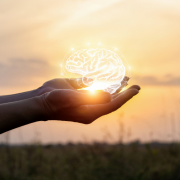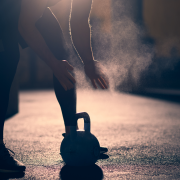The Best Habits for Your Brain
Did you know that mental decline is common as we age? Many people fear the consequences of aging, such as declining cognitive and mental function or loss of independence. However, there some habits we can implement that have been shown to improve brain health.
Here are the top 5 habits for Brain Health:
1. An active lifestyle and the right diet
Physical activity has been shown to slow the process of brain aging and degenerative pathologies, such as Alzheimer’s Disease and diabetes. Studies have also proven that an active lifestyle can improve memory and cognitive processes.
Both endurance and resistance exercise allow for muscle synthesis, but there is no consensus on the impact of different types of exercise on brain health. However, research has shown that habitual exercise has a positive impact on both physical and mental health, including brain health.
Additionally, a nutritious diet can help prevent cognitive impairment and improve brain health. Studies have proven that nutrients such as omega-3 fatty acids and vitamins (particularly vitamins B, D and E) can positively impact cognitive processes.
2. Balance
Practicing mindfulness and finding the right balance is an important habit that can help us reduce stress and engage positively with the world around us. A poor work-life balance has been shown to have long-term negative impacts on our brain health.
3. Healthy sleep habits
Research has shown that “sleep plays a vital role in brain function” and adults need about 7 hours of sleep every night to be able to perform their best. Check out our article on how to optimise your sleep here!
Other benefits of sleep include:
- Supports mental health
- Improves memory
- Reduces inflammation
- Supports the immune system
The Rewire App has a personalized Sleep Priming Session because we know just how important quality sleep is.
4. Social interaction
A study in 2020 showed that “social engagement may protect against cognitive decline” and accumulating research has proven that socializing is good for our brain health. Interacting with others trains our brains and social contact can help us improve memory formation and build mental resilience.
5. Stimulate the brain
In the same way that we exercise our bodies, our brains need exercise too. Studies have shown that stimulating the brain can enhance cognitive function and build mental resilience. Interested in learning more? Read about the worst habits for your brain here.
Rewire’s Neuro-Training protocols are backed by over 10 years of scientific research and have been shown to develop mental resilience. Rewire takes a holistic approach to achieving peak performance by providing tools for training and recovery of both the mind and body.
Give Rewire a try and experience how good habits can help the health of your brain! Train both your physical and mental fitness with Rewire today.

Sources
Harvard Health. (2006). 12 ways to keep your brain young. [online] Available at: https://www.health.harvard.edu/mind-and-mood/12-ways-to-keep-your-brain-young?msclkid=ee9f1fc9bd5611ec9d3b5fcafd3ab3de [Accessed 16 Apr. 2022].
Di Liegro, C.M., Schiera, G., Proia, P. and Di Liegro, I. (2019). Physical Activity and Brain Health. Genes, [online] 10(9), p.720. Available at: https://www.ncbi.nlm.nih.gov/pmc/articles/PMC6770965/.
Gómez-Pinilla, F. (2008). Brain foods: the effects of nutrients on brain function. Nature Reviews Neuroscience, [online] 9(7), pp.568–578. Available at: https://www.ncbi.nlm.nih.gov/pmc/articles/PMC2805706/.
www.medicalnewstoday.com. (2016). Poor work-life balance leads to poor health later in life. [online] Available at: https://www.medicalnewstoday.com/articles/313755?msclkid=e3e89170bd7411ec866fa008cd28ab97#Findings-likely-to-apply-to-wider-populations [Accessed 16 Apr. 2022].
Medic, G., Wille, M. and Hemels, M. (2017). Short- and long-term Health Consequences of Sleep Disruption. Nature and Science of Sleep, [online] Volume 9(9), pp.151–161. Available at: https://www.ncbi.nlm.nih.gov/pmc/articles/PMC5449130/.
Cynthia Felix, MD, MPH, Caterina Rosano, MD, MPH, Xiaonan Zhu, PhD, Jason D Flatt, PhD, MPH, Andrea L Rosso, PhD, MPH, Greater Social Engagement and Greater Gray Matter Microstructural Integrity in Brain Regions Relevant to Dementia, The Journals of Gerontology: Series B, Volume 76, Issue 6, July 2021, Pages 1027–1035, https://doi.org/10.1093/geronb/gbaa173
Al-Thaqib, A., Al-Sultan, F., Al-Zahrani, A., Al-Kahtani, F., Al-Regaiey, K., Iqbal, M. and Bashir, S. (2018). Brain Training Games Enhance Cognitive Function in Healthy Subjects. Medical science monitor basic research, [online] 24, pp.63–69. Available at: https://www.ncbi.nlm.nih.gov/pubmed/29674605.
Join Our Community Today!














